The game industry is doing “okay” in this bad economic time compared to other industries. Primarily, Nintendo is rocking the house with their games, hand-held’s and consoles while mobile developers are showing some great successes in the industry. Many success stories in our industry are based on small titles, downloadable games of the more “casual” style while a few larger titles are experiencing slower than expected sales trends.
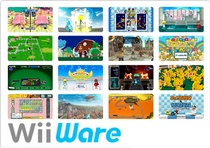 We’ve mentioned this in the past, but the tough economy gives many smaller developers great opportunities for success. While big publishers struggle to look good in the eyes of the investor, tiny developers can produce quality titles for minimal cash investment and time to market. Ten years ago, smaller developers tried to compete with the big boys making larger titles, cloning successful titles or simply asking investors to put it on the line for their game. Today, developers can create a small iphone app, a cute WiiWare title or exploit the XNA efforts of Microsoft for Xbox Live Arcade and actually have a chance.
We’ve mentioned this in the past, but the tough economy gives many smaller developers great opportunities for success. While big publishers struggle to look good in the eyes of the investor, tiny developers can produce quality titles for minimal cash investment and time to market. Ten years ago, smaller developers tried to compete with the big boys making larger titles, cloning successful titles or simply asking investors to put it on the line for their game. Today, developers can create a small iphone app, a cute WiiWare title or exploit the XNA efforts of Microsoft for Xbox Live Arcade and actually have a chance.
There are still challenges with these smaller developers when working in the WiiWare and XBLA publishing channels, your game marketing and promotion becomes highly reliant on Nintendo, Microsoft or Sony for PSN. Tom Prata, senior director of Nintendo of America talked to Gamespot about this issue:
“Finally, there’s the problem of promotion. It’s not enough to make a great game if nobody notices it. Prata specifically said Nintendo will be devoting more resources to support the promotion and development of WiiWare games in the future.” (gamespot)
Of course, in the world of smaller game titles and downloadable casual games, you’re going to be at risk of finding a lot of “shovelware” — products that are only released to make a quick dime, often based on some license or popular theme/character. The great game titles will, hopefully, rise to the top and show themselves off amongst all the wanna-be money makers.
Those smaller developers putting a huge passion into their titles actually have a chance in this new industry trend. Game makers, internationally, now have a chance to grasp a small piece of the industry and make their dreams come true. The core audience may see this as a trend of noisly low quality titles, but I believe the industry needs this change to grow a new generation of developers based on niche interests.
While many can wait for their next release of Madden the rest of us will continue to spend a little money to see what the future innovators are going to be bringing to the table.
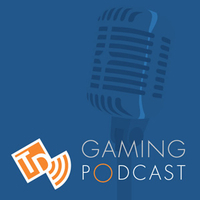 6,200 Reasons to buy iphone/touch games
6,200 Reasons to buy iphone/touch games
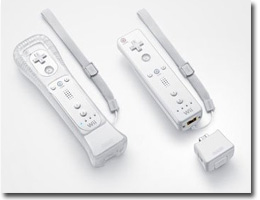 The Wii Motion Plus is going to be bundled with Wii Sports Resort, a title that’s obviously playing off the biggest Wii hit Wii Sports.
The Wii Motion Plus is going to be bundled with Wii Sports Resort, a title that’s obviously playing off the biggest Wii hit Wii Sports. 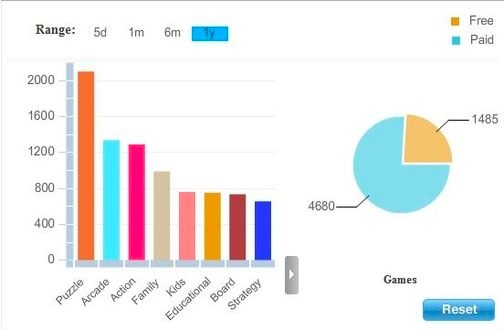
 You remember when Wii games were $49.99 and everyone made titles that hit this price point or lower? MTV isn’t going to stick to this standard, regardless of “last gen graphics” because you’ll buy it anyway, right? Rock Band is one of those games that has hit huge strides in the market over the last few years as people buy big plastic instruments to rock their house.
You remember when Wii games were $49.99 and everyone made titles that hit this price point or lower? MTV isn’t going to stick to this standard, regardless of “last gen graphics” because you’ll buy it anyway, right? Rock Band is one of those games that has hit huge strides in the market over the last few years as people buy big plastic instruments to rock their house. The “year” Sony may be talking about is fiscal year 2009… which rolls into March 2010. Although Sony hasn’t tagged either title with an ETA, it’s being assumed that we’re talking 2009 until spring 2010. Given most games launch in the September and October time for the holiday season that leads us to believe it will either arrive for the holiday or slide to 2010. If the title isn’t ready for prime time by the holiday season, can you wait a full year for these games?
The “year” Sony may be talking about is fiscal year 2009… which rolls into March 2010. Although Sony hasn’t tagged either title with an ETA, it’s being assumed that we’re talking 2009 until spring 2010. Given most games launch in the September and October time for the holiday season that leads us to believe it will either arrive for the holiday or slide to 2010. If the title isn’t ready for prime time by the holiday season, can you wait a full year for these games?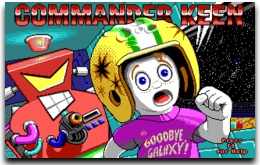 id Software has always leaned toward bleeding edge content, pushing hardware to its limits and utilizing technology that has just hit the market. Nobody is surprised when they’re forced to upgrade their computers to play the latest id Software creation to its fullest extent. This is the price for being top dog in graphic engines, but now they’re changing their tune a bit.
id Software has always leaned toward bleeding edge content, pushing hardware to its limits and utilizing technology that has just hit the market. Nobody is surprised when they’re forced to upgrade their computers to play the latest id Software creation to its fullest extent. This is the price for being top dog in graphic engines, but now they’re changing their tune a bit. We’ve mentioned this in the past, but the tough economy gives many smaller developers great opportunities for success. While big publishers struggle to look good in the eyes of the investor, tiny developers can produce quality titles for minimal cash investment and time to market. Ten years ago, smaller developers tried to compete with the big boys making larger titles, cloning successful titles or simply asking investors to put it on the line for their game. Today, developers can create a small iphone app, a cute WiiWare title or exploit the XNA efforts of Microsoft for Xbox Live Arcade and actually have a chance.
We’ve mentioned this in the past, but the tough economy gives many smaller developers great opportunities for success. While big publishers struggle to look good in the eyes of the investor, tiny developers can produce quality titles for minimal cash investment and time to market. Ten years ago, smaller developers tried to compete with the big boys making larger titles, cloning successful titles or simply asking investors to put it on the line for their game. Today, developers can create a small iphone app, a cute WiiWare title or exploit the XNA efforts of Microsoft for Xbox Live Arcade and actually have a chance. Ethan Nicholas, developer of a tank artillery game called iShoot, told Wired.com he quit his job the day his app rose to No. 1 in the App Store, earning him $37,000 in a single day. (
Ethan Nicholas, developer of a tank artillery game called iShoot, told Wired.com he quit his job the day his app rose to No. 1 in the App Store, earning him $37,000 in a single day. (